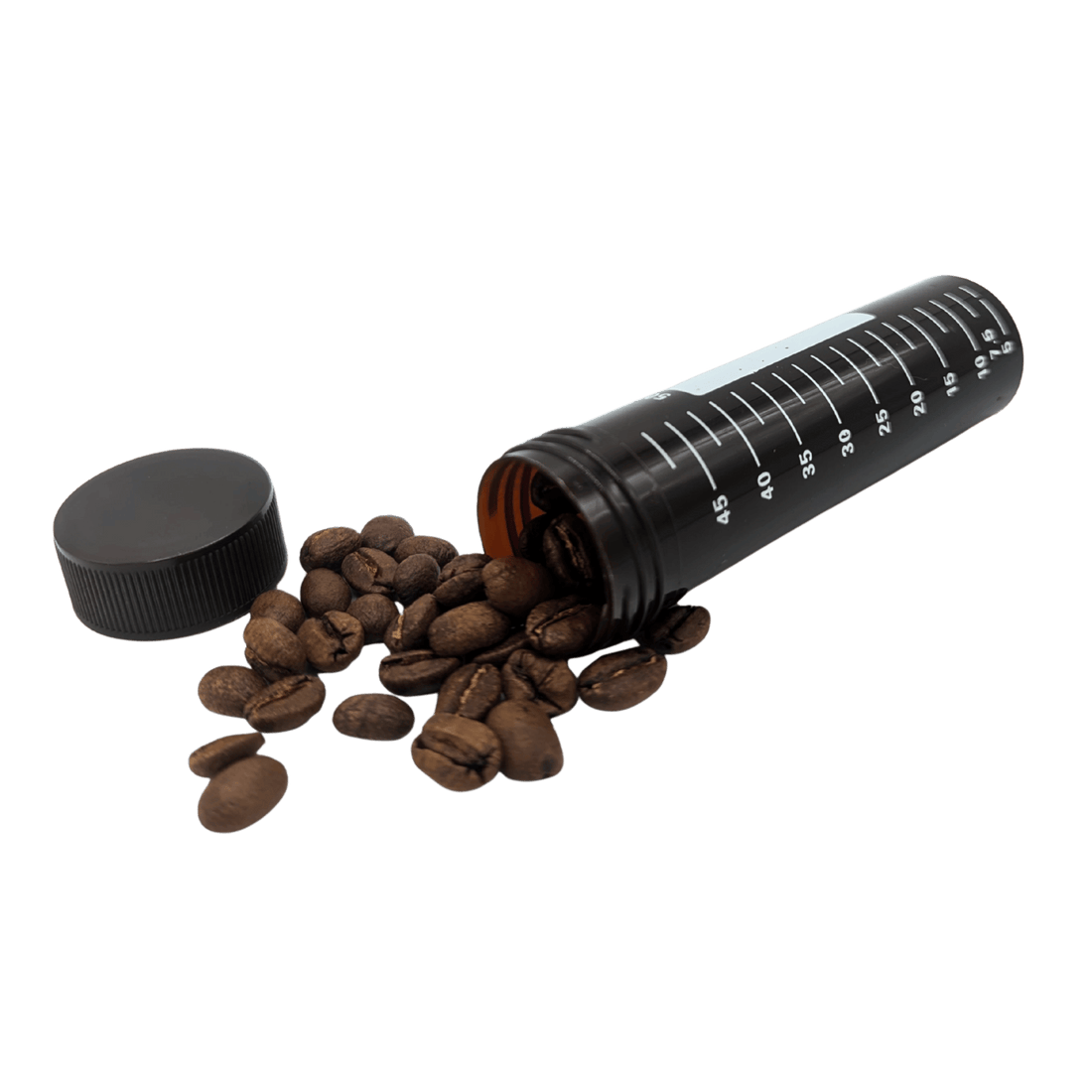
Freezing coffee – How to preserve quality and freshness for months
shares
Freshly roasted coffee begins to age almost immediately after roasting. Oxygen, heat, humidity, and light quickly degrade the delicate aromas. Light roasts, in particular, lose fruitiness and acidity; dark roasts oxidize more quickly, which can lead to rancid flavors. Freezing is one of the most effective ways to slow this deterioration—some even say it "stops time."
🔬 What does research say?
1. Study by Penn State University
-
Test: 6 roasting levels, 9 weeks storage at room temperature vs. frozen.
-
Result: Frozen coffee retained significantly more flavor. Sensory tests clearly distinguished between fresh, room-temperature coffee and frozen coffee.
-
Conclusion: Freezing protects sensitive flavors significantly better.
2. Royal Coffee: Comparison of green and roasted beans
Although many studies focus on green beans, sensory tests show that freezing preserves moisture and flavor over time. A study in Scientific Reports (Feb. 2022) confirmed this through chemical analyses.
3. PubMed Review 2024
A review shows: Storage at 5 °C (refrigerator) significantly slows down the loss of aromatic substances such as aldehydes and pyrazines compared to 20 °C.
4. Home Barista & Expert Opinion
Many home baristas report that coffee that is frozen immediately after roasting (after degassing) still tastes amazingly fresh even after many months – especially with high-quality specialty coffee.
✅ Best practices for freezing coffee
1. Waiting time after roasting: 10–14 days
After roasting, let the coffee off-gass—CO₂ needs to escape for a smooth extraction process. Most experts recommend freezing it around the 10th day after roasting.
2. Freeze in portions
-
Divide the beans into individual doses (e.g. 15-20 g for one brewing process).
-
Use vacuum bags or airtight containers.
-
If necessary, seal the valve on the packaging – it could draw in moisture from the air.
-
Label the package: roasting date, freezing date, dosage amount.
3. Freeze only once
Avoid thawing and refreezing coffee—condensation can ruin quality and flavor. Therefore, freeze many small cans instead of one large bag.
4. Grind directly from frozen
If possible, freeze beans in individual portions and grind them directly from frozen. This preserves volatile flavors and prevents condensation on the surface.
🧊 How long does coffee last when frozen?
Theoretical durability
The chemical reactions in coffee slow down by about half with every 10°C drop in temperature. This means:
-
30 days at room temperature ≈ 90 days in the freezer.
-
At -18 °C (household freezer), 1 month at room temperature corresponds to about 69 months in the freezer – i.e. over 5 years !
In practice, 6-12 months is a realistic period for top quality with good packaging.
Experience
Baristas report: Beans that were frozen for over a year (vacuum-packed and in portions) still tasted clear, aromatic and complex when extracted – albeit with a slightly reduced freshness.
👎 Disadvantages & risks of freezing
-
Condensation: Moisture can form during thawing – harmful to taste and crema.
-
Odor absorption: Coffee is porous and can easily absorb odors in the freezer – e.g., from onions or meat.
-
Texture changes: Some roasters report slightly different roasting patterns in re-roasted, frozen beans.
📋 Step-by-step instructions
| Step | What to do? | Why? |
|---|---|---|
| 1 | Wait 10–14 days after roasting | CO₂ can escape – better extraction |
| 2 | Divide into individual doses | No need to defrost multiple times |
| 3 | Vacuum or pack airtight | Protection against oxygen, moisture, odors |
| 4 | Label | Overview of roasting and freezing dates |
| 5 | Freeze (only 1×) | Stop reaction processes |
| 6 | Grind directly from frozen | No loss of flavors, no moisture |
👃 Effects on taste
-
Aroma: Preserved significantly better than when stored at room temperature – scientifically proven.
-
Taste: Light roasts retain their fruitiness, dark roasts do not lose their body.
-
Crema & Texture: Tends to be stable – especially when freezing rules are followed.
🎯 When is freezing worthwhile?
Not necessary if…
…you consume your coffee in 2-4 weeks.
Very useful if…
-
You want to store rare microlots or expensive coffee.
-
You roast large quantities and don't use them quickly enough.
-
You want to enjoy seasonal specialties throughout the year .
🧠 Conclusion
Freezing roasted coffee isn't a necessity for everyday coffee drinkers, but it can be a valuable tool for those who value quality, flavor, and sustainability. By carefully portioning, properly packaging, and grinding directly from the freezer, you can enjoy your favorite beans in near-perfect condition even months later.
In short: freeze properly once – enjoy the best quality for a long time .
